Key Points
- McMurdo Dry Valleys is the driest spot; some areas haven't seen rain in millions of years.
- Chile's Atacama Desert is the driest non-polar region, used by NASA for Mars simulation.
- Cities like Aswan and Luxor survive only due to the life-giving Nile River.
When you think of the driest place on Earth, you might think of hot sand dunes, but the title is often hotly debated between hot and cold deserts. The scientific evidence supports the current agreement that Antarctica's unique valleys are the driest places on Earth. As the world's climate changes, these very dry areas become natural labs for scientists, including NASA, to study life in harsh conditions.
They even use them to practice for missions to Mars. This interesting trip takes you to the seven driest places on Earth, ranked by how little rain they get each year. The trip goes from the famous Atacama Desert to the mysterious Dry Valleys in Antarctica.
Which are the Driest Places in the World?
This table shows the driest places in the world, along with their location, type of environment, and the lowest average annual rainfall that makes them a true hyper-arid zone.
| Rank | Name of the Driest Place | Country/Continent | Average Annual Precipitation (Approx.) |
| #1 | McMurdo Dry Valleys | Antarctica | ≈ 0 mm (Polar Desert) |
| #2 | Atacama Desert | Chile / Peru | ≈ 0.1 mm |
| #3 | Arica | Chile | ≈ 0.76 mm |
| #4 | Aswan | Egypt | ≈ 0.86 mm |
| #5 | Luxor | Egypt | ≈ 1.0 mm |
| #6 | Ica | Peru | ≈ 2.29 mm |
| #7 | Wadi Halfa | Sudan | ≈ 2.45 mm |
| #8 | Iquique | Chile | ≈ 5.08 mm |
| #9 | El Minya | Egypt | ≈ 5.1 mm |
Check Out - List of Top 10 Youngest and Oldest Mountain Ranges in the World 2025 (Updated)
1. McMurdo Dry Valleys
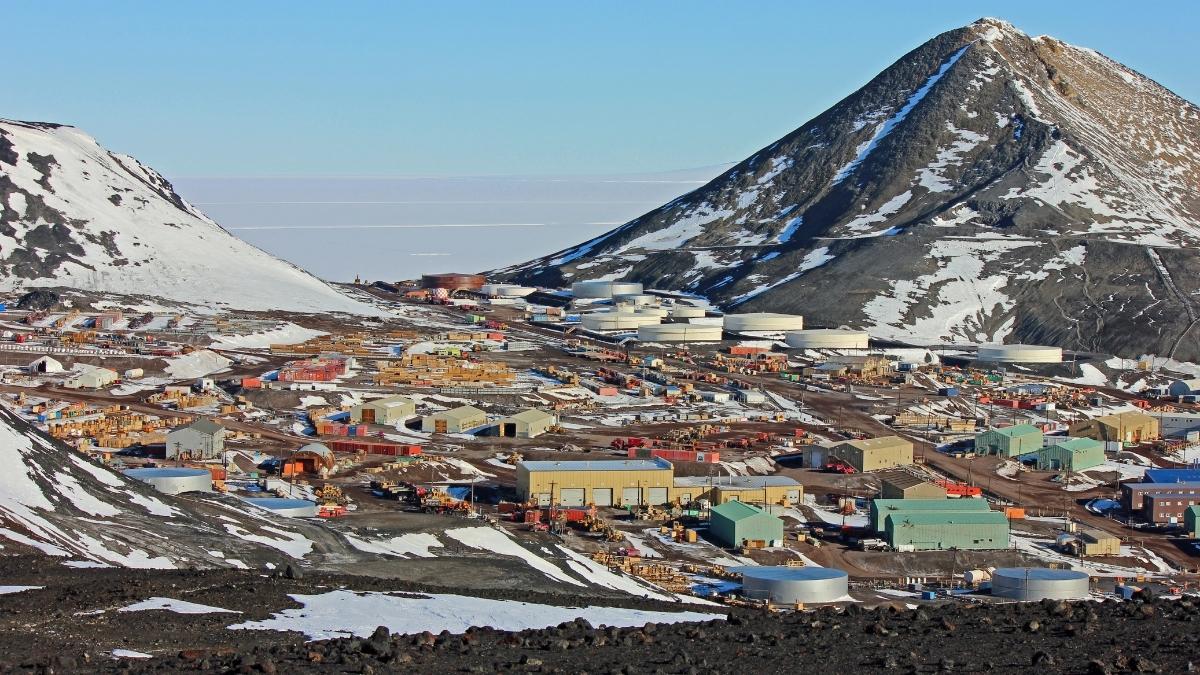
The McMurdo Dry Valleys, which are in the remote Victoria Land of Antarctica, are often called the driest place on Earth. This is a clear sign of how dry it is. This is not a hot desert; it is a polar desert where strong, dry, and cold Katabatic winds blow down from the interior and dry up all the moisture, ice, and snow.
These valleys are the largest ice-free region on the continent. Scientists think that some places haven't seen any rain in about two million years, which makes them a great place for astrobiologists to study conditions that are similar to those on Mars.
2. Atacama Desert
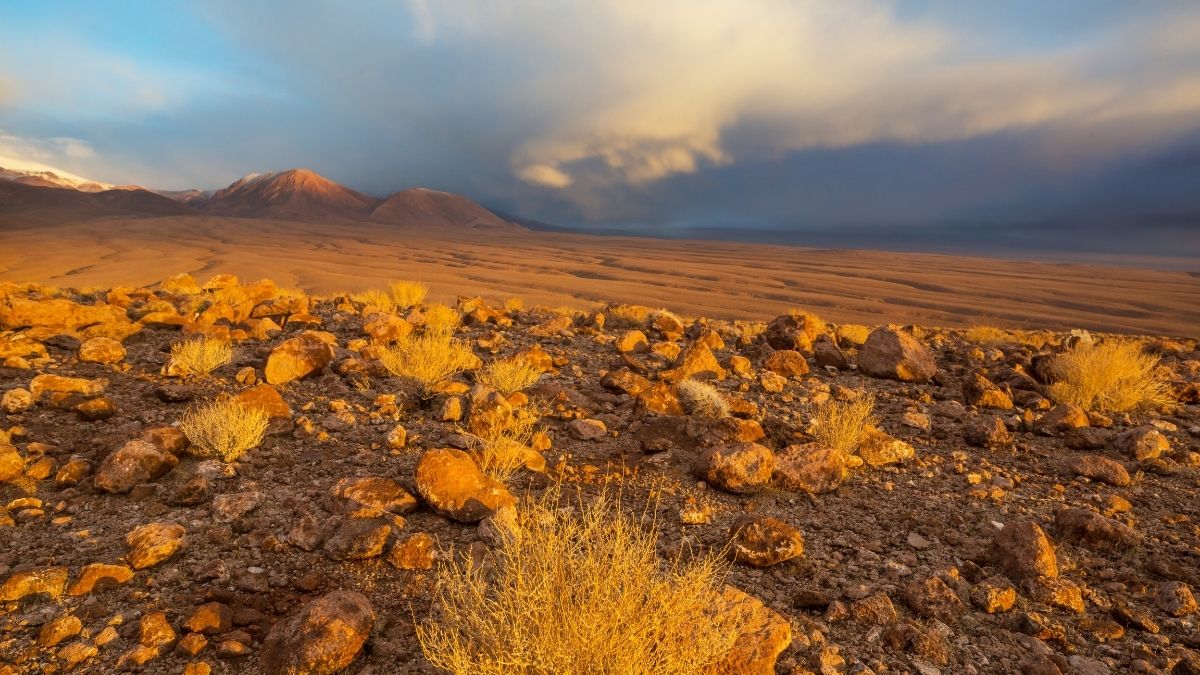
The Atacama Desert is known as the driest desert outside of the polar regions. It is in northern Chile and goes into Peru. In its hyper-arid core, the average annual rainfall is only about 0.1 mm. The cold Humboldt Current in the Pacific Ocean keeps moisture from the west out of the region, and the Andes Mountains to the east create a rain shadow. This makes the area very dry. The Atacama is home to unique types of extremophiles and is known for its clear skies, which is why so many astronomical observatories are located there.
3. Arica, Chile
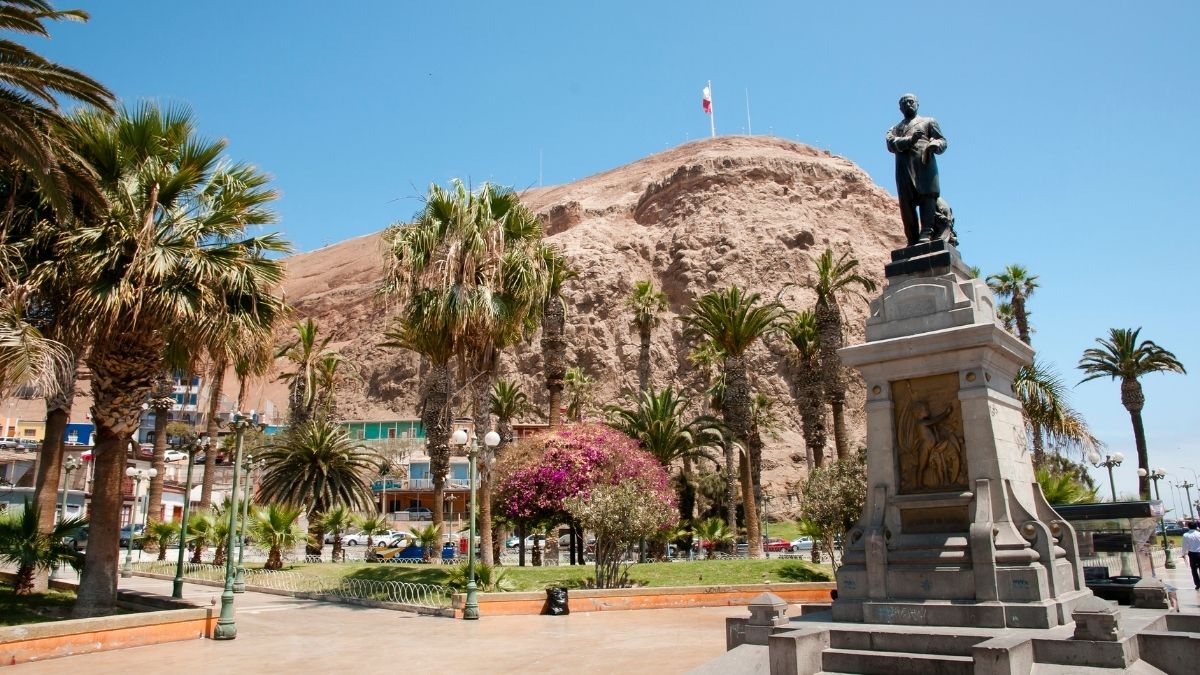
As a coastal city in northern Chile, Arica is technically part of the vast Atacama Desert system. While it sits right on the Pacific Ocean, it receives a tiny average of approximately 0.76 mm of rain per year.
A unique feature here is the camanchaca, a dense coastal fog that provides the only moisture for local vegetation and has allowed human settlements to sustain themselves, making Arica arguably the driest place on Earth that supports a significant population.
4. Aswan, Egypt
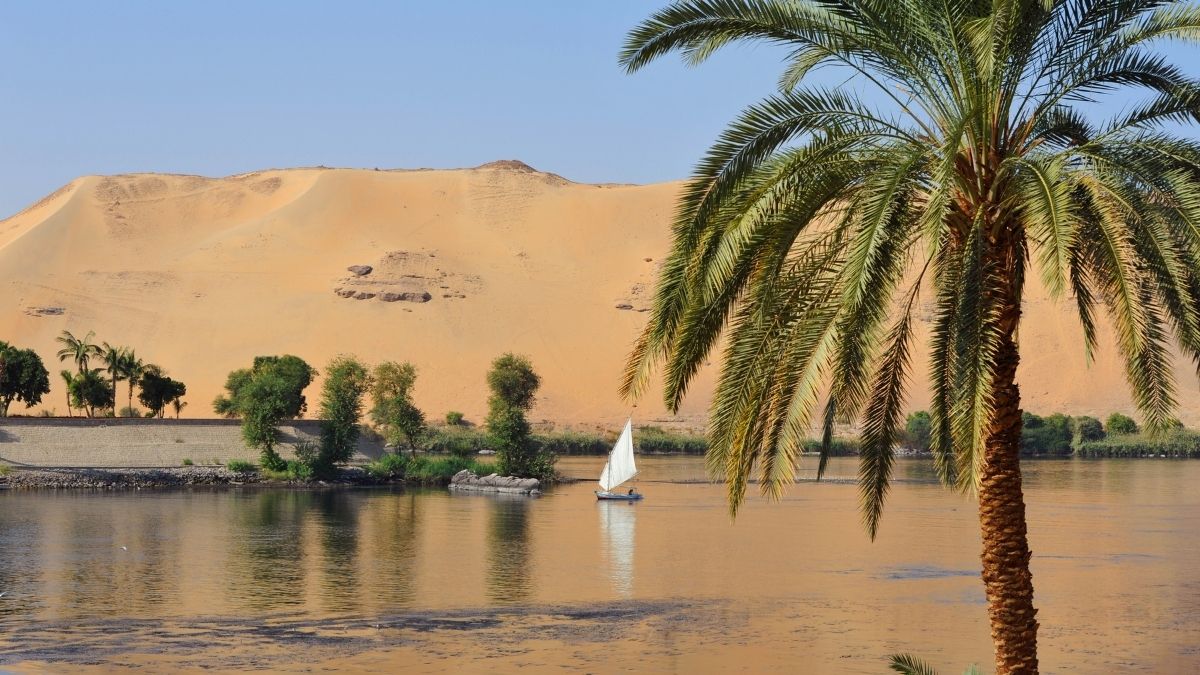
Positioned on the eastern bank of the Nile River, right at the edge of the Nubian Desert, Aswan is one of Africa’s most arid inhabited locations, with an annual rainfall of about 0.86 mm. Its reputation as a place where measurable rain is rare, sometimes lasting for years, is due in part to the extreme dryness and heat. The Nile is the only thing that keeps the city alive, which shows how important the river is to this area.
5. Luxor, Egypt
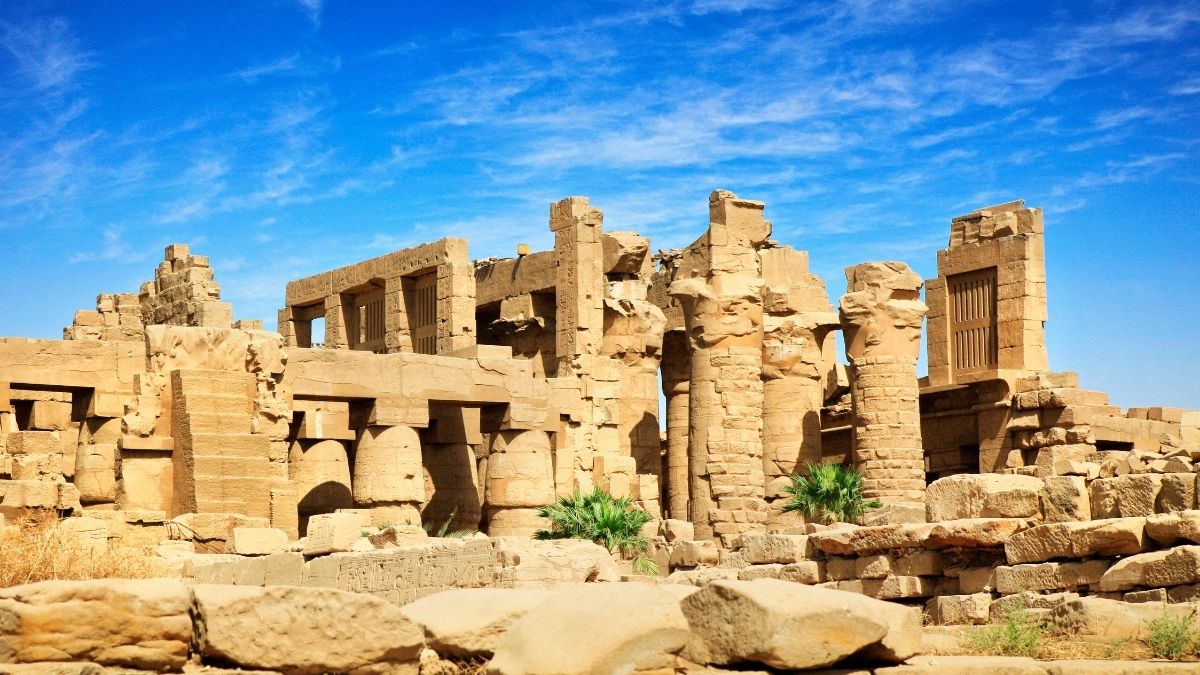
Luxor, in southern Egypt, is home to a lot of the world's ancient artifacts. It only gets about 1 mm of rain a year. The Valley of the Kings and other ancient temples and tombs have been protected for thousands of years by the very dry and hot climate. Like Aswan, it only exists because of the nearby Nile River. This shows how different the fertile riverbanks are from the surrounding dry desert.
6. Ica, Peru
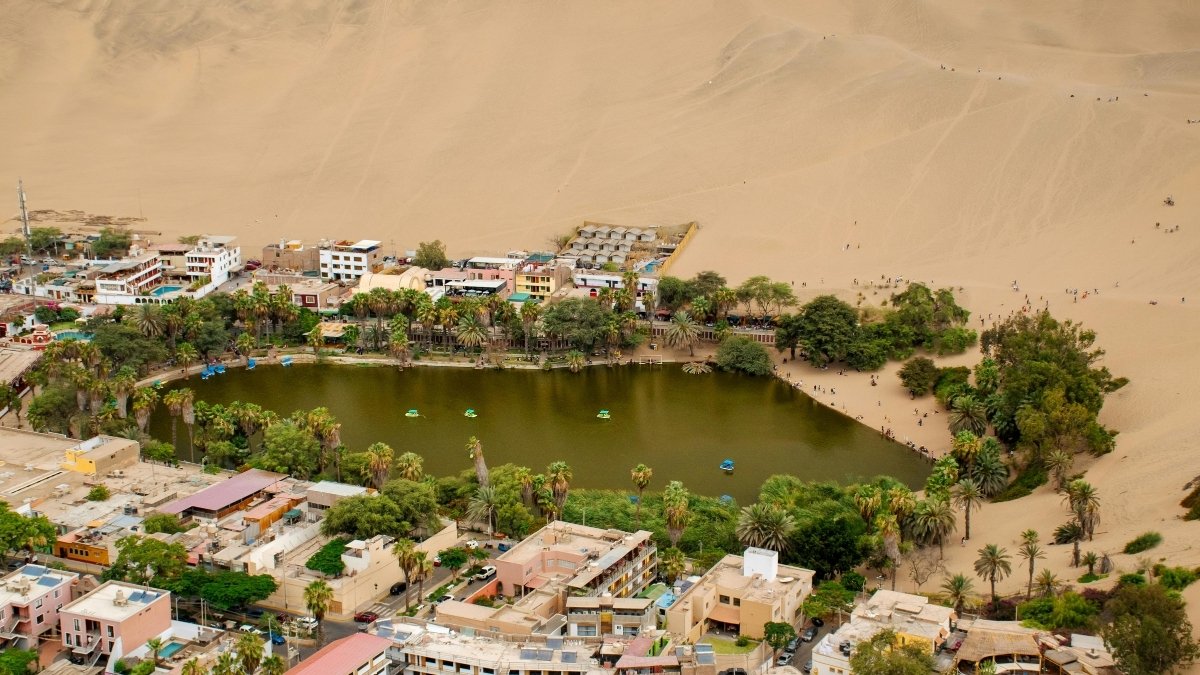
Located in the Sechura Desert of southern Peru, bordering the formidable Atacama, Ica receives around 2.29 mm of rain per year. This region is famous not just for its dry conditions, but also for the El Huacachina oasis. The low humidity and dry air are perfect for keeping ancient human remains and artifacts safe, giving us a great look into pre-Columbian history.
7. Wadi Halfa, Sudan
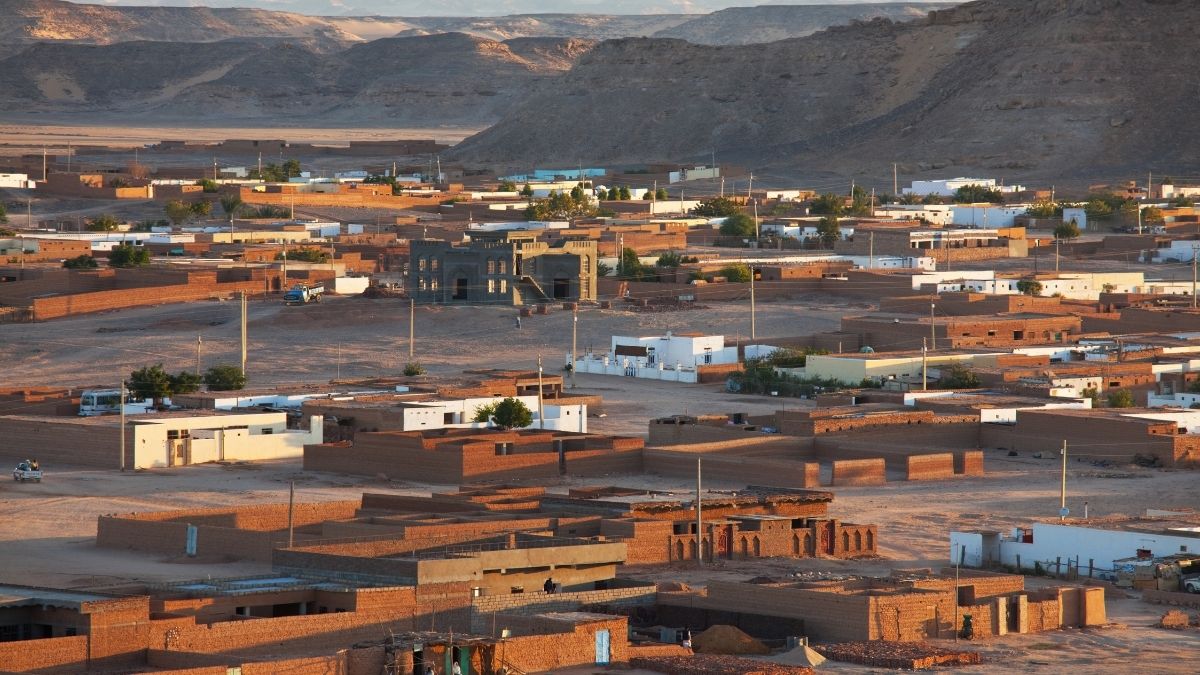
Deep in the Nubian Desert of Sudan, Wadi Halfa records a minute average annual rainfall of about 2.45 mm. This town sits in a zone where the descending, drying air of the subtropical high pressure is dominant, resulting in a classic hyper-arid climate. It is one of the driest and most extreme places on Earth because it is so far away from anything that could change the weather, and the temperatures are always high.
8. Iquique, Chile
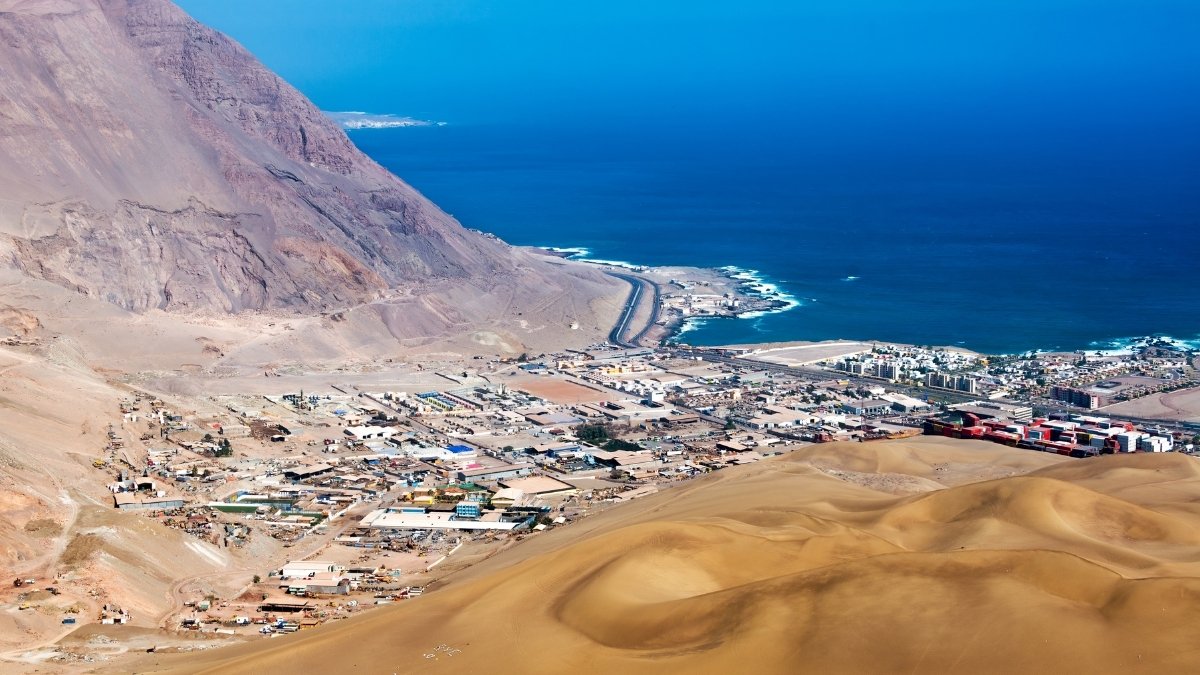
This coastal port city in northern Chile sits to the west of the Atacama Desert and records an average annual rainfall of about 5.08 mm. Despite its proximity to the Pacific, the moisture-sapping effects of the cold Humboldt Current keep the air dry. Iquique is a testament to how human activity, such as fishing and mining, can sustain a population in an otherwise hostile, hyper-arid environment.
9. El Minya, Egypt
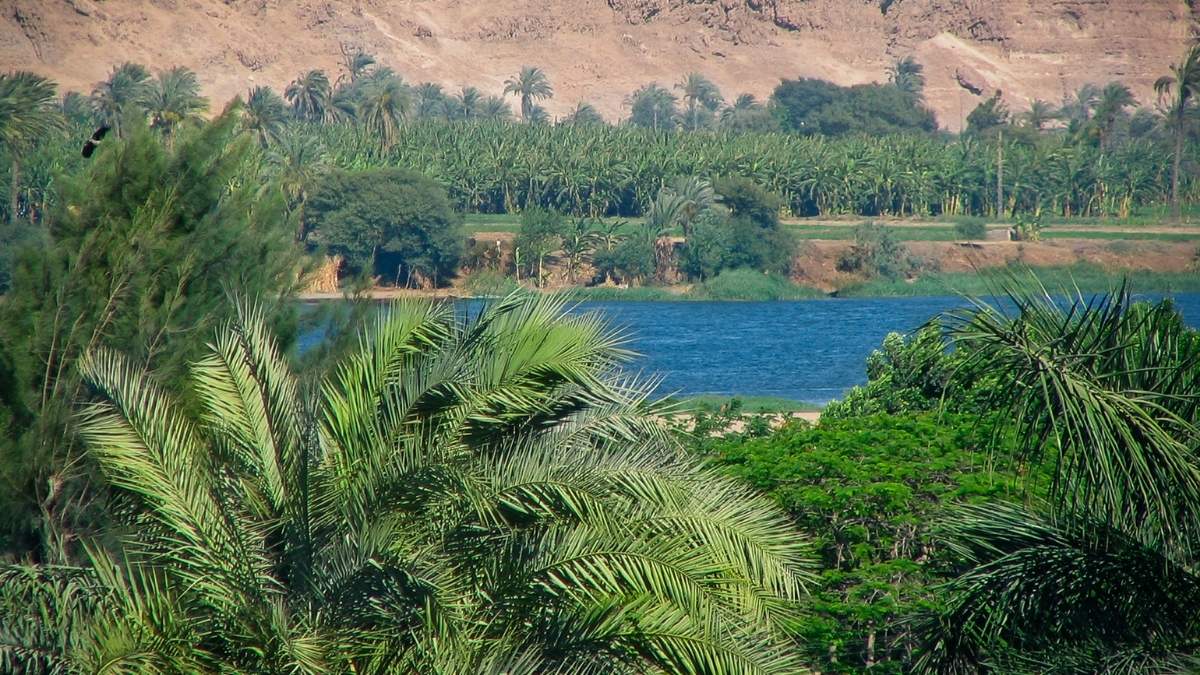
Located in Middle Egypt, El Minya is another city that highlights the contrast between the Nile's life and the desert's extreme dryness, with an average annual rainfall of approximately 5.1 mm. It sits on the western bank of the Nile, where the surrounding desert climate of the Western Desert (part of the Sahara) dominates. Its low precipitation places it firmly among the world's most arid inhabited areas.
Check Out: List of Top 9 Deepest Lakes in the World 2025: Ranked
These seven places have the most extreme climates on Earth, and people can only survive there by adapting or being close to a lifeline like the Nile River. From the cold, windy McMurdo Dry Valleys to the hot, dry Atacama Desert, they show off a world with a lot of different environments that scientists and adventurous travelers are still interested in.
To see more of such stories, you can go ahead and add this site to your preferred sources by clicking here.
Comments
All Comments (0)
Join the conversation